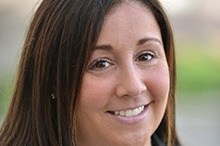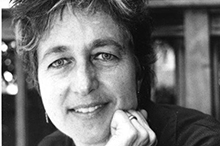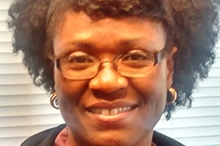Champions of Change Blog
America’s Foster Youth and Housing Stability
Posted by on May 20, 2015 at 12:47 PM EST
Sokhom Mao is being honored as a Champion of Change for Foster Care
I entered foster care at the age of 12, and quickly became worried about where I would live after exiting care. Thousands of foster youth, like me, also leave care with great uncertainty of their housing situation. And, of those that secure housing, many are not equipped to take care of themselves when they age out.
Youth transitioning out of foster care into adulthood often struggle just to find a place to live. Empirical research shows they experience marginal and unstable housing, as well as higher rates of homelessness than the general population of transitional aged youth. And, with housing prices increasing significantly in recent years in many urban areas of the U.S. foster youth have very limited choices. For the foster youth aging out of the child welfare system each year, housing is “the make it or break it” deal.
Thankfully, the Fostering Connections to Success Act of 2008, H.R. 6893 gave states the option to allow youth to stay in foster care until age 21. In 2012, California extended foster care services (under Assembly Bill 12) with the goal to help youth stay connected to services, and to encourage a more successful transition to adulthood. Now they have additional support finding consistent and safe housing, educational and employment training opportunities, and an improved ability to make permanent connections with caring adults.
As an older teen in foster care I lived in a scattered-site transitional housing program with Bay Area Youth Centers (BAYC) in Hayward, California. I learned a lot of skills at BAYC and am so pleased that in 2012, under Assembly Bill 12, the program became the first licensed Transitional Housing Placement Plus Foster Care provider in the state of California, which allowed them serve up to 100 foster youth in their own apartments between ages 18 and 20 in Northern California. Preliminary reviews are already showing the immense impact of the program—100 percent of youth were residing in stable housing 2-7 years after exiting the program.
In 2005, I left foster care and attended San Francisco State University as one of the first students in the SF State Guardian Scholars Program (GSP), a program to assist undergraduate students from foster care. GSP provides clinical case management, academic support, employment and internship services, counseling, leadership opportunities, and more. But, most importantly the program and university offer year-round on-campus housing. San Francisco State University was the first public university to provide year-round housing to all of its students from foster care, addressing housing instability during the winter and summer breaks. And, off-campus students receive a summer housing stipend from GSP. As a result of its extensive services, GSP has a 90 percent retention rate and a 75 percent graduation rate, compared to the national average of 1-3 percent graduation rate for foster youth and 69 percent rate for the general population of students. The program has helped more than 160 foster youth in the last 10 years and is a non-profit located right on campus.
I know how difficult aging out of foster care can be. Many foster youth still experience homelessness, incarceration, mental health challenges, unplanned pregnancies, and unemployment at disheartening rates. We can change these statistics—and give foster youth a real shot at success—by expanding funding for outcome-driven programs like SF State GSP and BAYC.
I am hopeful we will look towards creating new legislation and funding for programs that will enable the 23,000 foster youth who age out annually to benefit from the support of successful organizations, so these young people can aim high and achieve their own ambitions in adulthood.
Sokhom Mao is the Alameda County Juvenile Justice Commissioner and the Public Education Specialist of the California Social Work Education Center at the University of California, Berkeley. He is a graduate of San Francisco State University.
Learn more aboutNothing Magical About Turning 18
Posted by on May 20, 2015 at 12:37 PM EST
Mary Lee is being honored as a Foster Care Champion of Change
I came into the foster care system around the age of 12. I had never heard of foster care and didn’t know what to expect. I remember packing all my belongings in trash bags and leaving my family behind. I was told that I was lucky because I was placed in foster home rather than a group home.
At the time, I felt anything but lucky.
Fortunately, I excelled in school and it became my safe haven. It’s where I received praise and affirmation. It was the one place I could just be Mary and not a foster child. Still, there was still a part of me that longed to have a forever family and a sense of permanency. I wanted to know that there would be a place to come home to during holiday breaks at college, a dad to walk me down the aisle, and grandparents for my kids one day. Deep down, I knew there was nothing magical about turning 18. I wasn’t going to wake up on my 18th birthday and suddenly have my entire life figured out. I knew that family is about more than just your childhood. It’s about having a support system to rely on when things get challenging and having cheerleaders to celebrate your accomplishments.
I went up for adoption at the age of 16. Surprisingly, many people were negative. I heard things like: you’re unadoptable; you’re too old; no one wants a teen; why put yourself out there and risk rejection; wait and age out of foster care so you can have financial assistance for college. Again, I knew there was nothing magical about turning 18 and that I desperately needed and deserved to have a family.
Thankfully, my wish was granted. One week before my 18th birthday, I was adopted by my Department of Children’s Services case manager and his family. Almost 17 years later, they are still my family and my biggest supporters.
Today, I feel incredibly lucky. Because of foster care I found my forever family and have had opportunities to pursue my educational dreams. In fact, I’m one of the 1 percent of former foster youth who have completed a graduate/professional degree.
Foster care changed my life, and now I’m changing the lives of other youth who have experienced foster care through my work as the National YVLifeSet Coordinator at Youth Villages, a national non-profit organization helping at-risk children and families through a variety of programs. My role focuses on enhancing, growing and supporting Youth Villages’ initiatives with foster and at-risk youth transitioning to adulthood including the YVLifeSet program, which has helped more than 7,600 youth.
At Youth Villages, I also helped establish the YV Scholars program, enabling former foster youth to attend college while receiving additional support. While only 3 percent of former foster youth typically graduate college, the YV Scholars program has seen six college graduates in its first five years and nearly 50 more young people are on the path to undergraduate success.
In additional to my current work, one of my greatest achievements was helping ensure foster youth adopted from state custody would not have to choose between a forever family and funds to pursue higher education, like I did. My story inspired the Fostering Adoption to Further Student Achievement Act (nicknamed the Mary Lee Act), which gives youth who are adopted after the age of 13 the ability to be considered an independent student and not include their adoptive parents’ incomes in their aid request. Prior to this law, many older foster youth were deterred from being adopted for fear of losing financial support for college.
Mary Lee is the National YVLifeSet Coordinator at Youth Villages. She is a graduate of Austin Peay State University and The Cecil C. Humphreys School of Law at the University of Memphis.
Learn more aboutNominate a White House Champion of Change for Precision Medicine
Posted by on May 18, 2015 at 5:26 PM ESTOn January 30, 2015, President Obama launched the Precision Medicine Initiative: a bold new research effort that aims to revolutionize the way we treat disease and improve health. While most medicine is designed with the “average patient” in mind, the President’s Precision Medicine Initiative aims to take into account individual differences in people’s genes, environments, and lifestyles to improve patient’s health. By empowering patients, researchers, and providers to work together in developing individualized treatments, the Initiative could lead to powerful new discoveries and treatments for diseases such as cancer, diabetes, and many more.
In fact, there are many patients, researchers, companies, entrepreneurs, and health care providers across the country who are leading the way, generating and using data to make progress on our most pressing medical challenges. For example, at the age of 12, Elana Simon was diagnosed with a rare type of pediatric cancer that affected her liver. Determined to learn more about the disease, as a high school student, Elana set out to work with other patients and researchers to study the characteristics of this specific type of liver cancer. By working with a precise patient group instead of a more general population of all patients with liver cancer, Elana and her team identified the specific change in DNA that leads to the development of her cancer and are now developing the first diagnostic tests and clinical trials for the disease. Elana, whose cancer is now in remission, is just wrapping up her freshman year at Harvard University.
This is exactly the kind of data-driven approach in which the President’s Precision Medicine Initiative aims to invest. Just as we identify and match blood types for transfusions, and customize prescriptions for glasses and contacts to the individual, this initiative aims to usher in an era in which we are able to improve health and treat diseases like cystic fibrosis, heart disease, and cancer based upon the characteristics of individual patients.
As Elana’s story also makes clear, there is already incredible work being done in this groundbreaking area of medicine. That’s why we’re calling on you to help us identify and honor individuals or organizations that are leading the way in health research and discovery by nominating a Champion of Change for Precision Medicine by midnight on Friday, May 29. Nominees may include:
- Researchers who are using a data-driven approach to improve treatments or uncover new insights to improve health.
- Leaders who are empowering people to work together to share their data or build research cohorts to better understand their diseases.
- Individuals who are developing innovative tools and techniques to harness and analyze health data.
- Advocates who are working to ensure that patient data are handled in a way that ensures privacy and security.
- Patients who have benefitted from a precision medicine approach to treatment and care and who are working to ensure that other Americans can benefit from this approach.
Click here to submit your nomination (be sure to choose Precision Medicine in the “Theme of Service” field of the nomination form).
We look forward to sharing the outstanding work that individuals and organizations across the country are doing to advance our understanding of health and disease.
Stephanie Devaney is the Project Manager for the Precision Medicine Initiative at the White House.
Learn more about TechnologyDACAmented Teachers as Champions of Change
Posted by on May 11, 2015 at 8:57 AM ESTOn June 15, 2012, President Obama announced that the Department of Homeland Security would establish the Deferred Action for Childhood Arrivals (DACA) process, which allows select undocumented individuals who came to the United States as children and meet several guidelines to obtain temporary relief from removal and to apply for work authorization.The president said, “These are young people who study in our schools, they play in our neighborhoods, they’re friends with our kids, they pledge allegiance to our flag. They are Americans in their heart, in their minds, in every single way but one: on paper.”
Since the 2012 announcement, more than 650,000 people have received DACA status and many of those individuals have chosen to take on work in critical fields of service to the nation. Among them are DACA recipients taking on the challenging and noble work of being a teacher. These teachers have become strong role models for students and families as well as change agents within their communities. In addition to working toward students’ academic success, DACAmented teachers who share the background of their students are uniquely positioned to have a profound impact on their students’ lives and the goals they set for their own futures.
This July, the White House will honor DACAmented teachers as Champions of Change to recognize their outstanding work inside and outside of the classroom. We will celebrate the impact they are having in the lives of their students and within their communities.
Please help us identify outstanding teachers with DACA status in the following categories:
-
Classroom Leader: Do you know a DACAmented teacher who is leading their students to achieve academic gains? Are his/her students on a path to make a year’s growth in their academic performance at the end of the year? Are his/her students on a different path academically as a result of having this teacher?
-
School Leader: Do you know of a DACAmented teacher who is leading a school club, organization, or support group in their school? Is this teacher actively working to make the culture in their school is more inclusive of all students? Is this teacher actively creating opportunities for all students regardless of their immigration status?
- Community Leader: Do you know a DACAmented teacher who is activating the parents and community leaders to advocate for issues that affect undocumented and DACAmented students? Is this teacher educating parents, teachers and community members about resources and opportunities available for undocumented students?
Please click here to submit your nomination by Midnight on Sunday, May 24th.
Julie Rodriguez is Senior Advisor to the President and Senior Deputy Director of Publlic Engagement.
Learn more about Immigration-
Classroom Leader: Do you know a DACAmented teacher who is leading their students to achieve academic gains? Are his/her students on a path to make a year’s growth in their academic performance at the end of the year? Are his/her students on a different path academically as a result of having this teacher?
A Piece of the Puzzle for Caring Families
Posted by on April 24, 2015 at 12:53 PM EST
Netsy Firestein is being honored as a Working Family Champion of Change
Almost thirty years ago when my older daughter was born, I got 3 months of fully paid maternity leave from the labor union where I worked. At the time, I had no idea how lucky I was. Later I learned the United States has NO national paid parental or family leave program. Today we are the only industrialized country in the world with no national policy even of paid maternity leave.
After thirty years, the reality has changed for millions as we won family leave insurance programs in three states (California, New Jersey and Rhode Island). I led the Coalition that helped to pass the California law in 2002 that provides up to 6 weeks of partial pay through a state insurance program—almost every employee in the state makes modest contributions to the program. An employee can receive wage replacement to bond with a new child or to care for a seriously ill relative—we recently expanded the law to have a more realistic definition of family, so that it covers parents, children, spouses, siblings, parents in law, grandparents and grandchildren.
However, this leaves out the other states. And paid family leave is only one piece of the puzzle for working families. We need to knit together our policies for caring for our families – our leave policies, our child care system and our workplace standards like paid sick days, minimum wage and work hours. Too often we address one issue at a time. But families are dealing with every issue, every day.
Today, families are left to fend for themselves and patch together time off from work and care for their children while they work. It is seen as a “private” issue, when in fact it is a public problem that we need to fix together.
We have a system of care that leaves many of the caregivers in poverty – those who care for our children as well as those who care for our elders. We leave our loved ones in the care of providers who, even with higher education levels, often make close to minimum wage. What does that say about how we value families?
The research is there – the importance of brain development in very young children; the need for parent/child bonding; the huge benefits of early childhood education; the needs of working parents to have affordable and accessible child care; the link between good wages for child care providers/teachers and high quality care; the impact on families of low wages and erratic work schedules.
Let’s be big and bold. Everyone says family comes first, right? So let’s put our money where our mouth is. Let’s have a national conversation about putting the pieces of the puzzle together for children and families: A national family leave insurance program; a higher minimum wage including full time hours for those who want it; paid sick days; and a well-funded, high quality child care and early education system at little or no cost to parents.
Netsy Firestein is a Senior Fellow at UC Berkeley Institute for Research on Labor and Employment. Previously she worked with the California Work and Family Coalition to pass paid family leave and other family friendly laws in California.
Making the American Dream Attainable for Everyone
Posted by on April 24, 2015 at 12:48 PM EST
ReShonda Young is being honored as a Working Family Champion of Change
It was a great surprise to receive a phone call from the White House, notifying me that I had been chosen as a Working Families Champion of Change. As I go about my business, doing what I believe to be the right thing to do for our employees, I really never thought I was doing anything special. My goal has always been to make sure that our workers have a fair shot at living the American Dream. The "American Dream" should be something that is attainable for everyone who chooses to work hard and play by the rules.
When I started fighting for health care reform in 2009, I did so because the failed system that was in place made health insurance unaffordable for my dad's small business to provide health insurance for our employees. The policies we were shown also denied health benefits for several of our employees due to pre-existing medical conditions, or for being overweight. Knowing that most of our employees had no health insurance in place, and had no way of paying for it on their own, was a huge concern for us. We knew that an illness or an accident could put our employees in a situation where they had to choose between getting the medical care that they need, and paying their rent/mortgage, utilities, or buying food. Those aren't choices anyone should have to make. Working with the Iowa Citizens Action Network and the Main Street Alliance allowed me to have a voice. Being able to testify before Congress about the need for health care reform in 2009 attracted enough attention for us to be able to get better options presented to us, and a health insurance plan in place for our employees that did not exclude their pre-existing conditions.
Another area that has been a huge issue for me in trying to make sure that not just our workers, but workers in general, have a fair shot at attaining the American Dream is bringing attention to the need for an increase in the minimum wage. Although we do not pay our employees minimum wage, we are directly affected by the minimum wage. Minimum wage jobs put us at a disadvantage when we are bidding for jobs against employers who pay minimum wage. It also affects my retail business. A lot of minimum wage workers don't have the disposable income to be able to patronize my business. We often are asked if we accept food stamps, which shows there is interest in our product. Unfortunately, we do not meet the guidelines to be able to accept food stamps.
Finally, there is a great need for things to change for women. When a woman is working the same job as a man, with the same education and qualifications as a man, and is only earning $0.77 to $0.78 to every $1 the man is earning, we have an issue that is not only a woman's issue, but a family issue, and an economic issue. I have fought to make sure women at our companies are paid the same as our male counterparts. That has not always been the case, but awareness is key, which is why I believe the Paycheck Fairness Act is critically important.
I will continue to fight for these issues, and others. As long as equality is not a reality, none of us are truly able to live the lives we are meant to live.
ReShonda Young is the Operations Manager and Corporate VP for her dad's businesses, Alpha Express Inc. and Alpha Services Inc., based out of Waterloo, IA. She is also the founder and owner of Popcorn Heaven, a gourmet popcorn store with headquarters in Waterloo, IA.
- &lsaquo previous
- …
- 3
- 4
- 5
- 6
- 7
- 8
- 9
- 10
- 11
- …
- next &rsaquo
White House Blogs
- The White House Blog
- Middle Class Task Force
- Council of Economic Advisers
- Council on Environmental Quality
- Council on Women and Girls
- Office of Intergovernmental Affairs
- Office of Management and Budget
- Office of Public Engagement
- Office of Science & Tech Policy
- Office of Urban Affairs
- Open Government
- Faith and Neighborhood Partnerships
- Social Innovation and Civic Participation
- US Trade Representative
- Office National Drug Control Policy
categories
- AIDS Policy
- Alaska
- Blueprint for an America Built to Last
- Budget
- Civil Rights
- Defense
- Disabilities
- Economy
- Education
- Energy and Environment
- Equal Pay
- Ethics
- Faith Based
- Fiscal Responsibility
- Foreign Policy
- Grab Bag
- Health Care
- Homeland Security
- Immigration
- Innovation Fellows
- Inside the White House
- Middle Class Security
- Open Government
- Poverty
- Rural
- Seniors and Social Security
- Service
- Social Innovation
- State of the Union
- Taxes
- Technology
- Urban Policy
- Veterans
- Violence Prevention
- White House Internships
- Women
- Working Families
- Additional Issues

